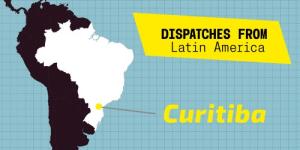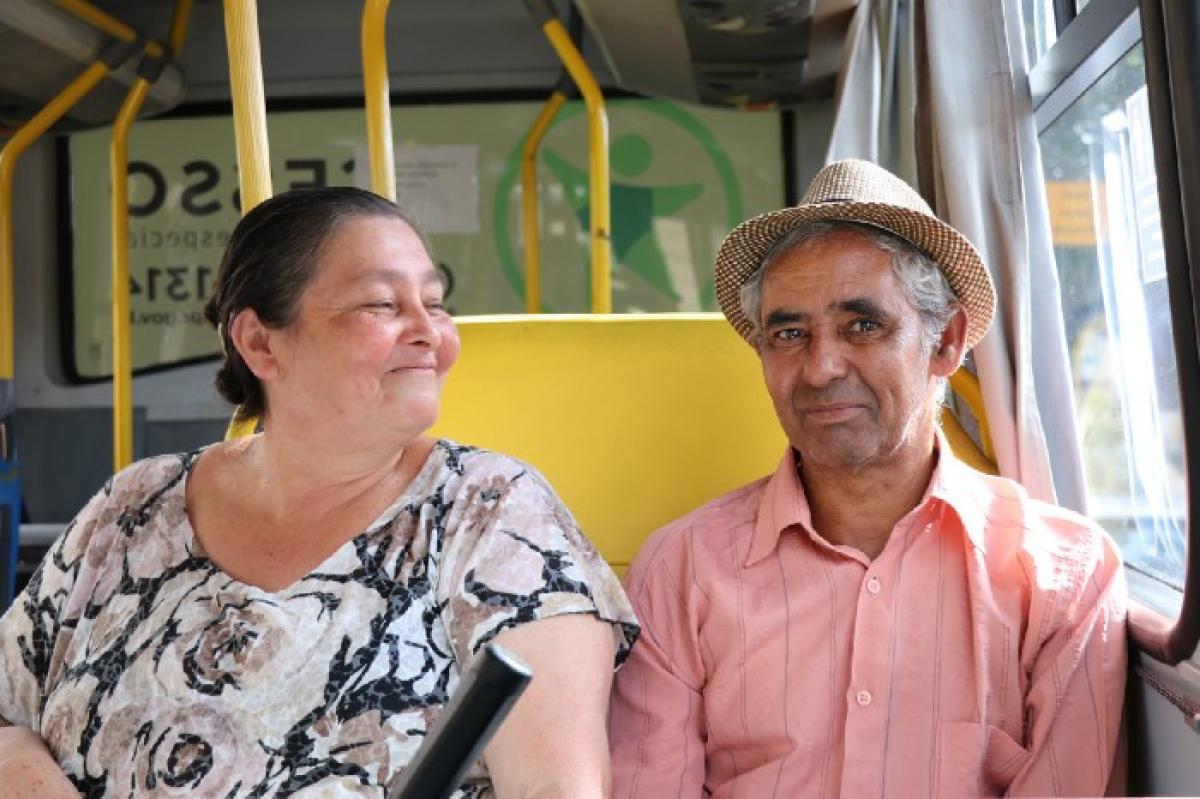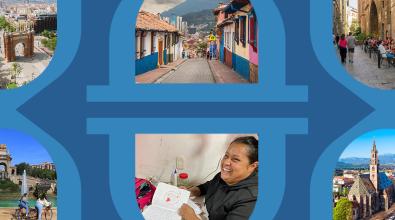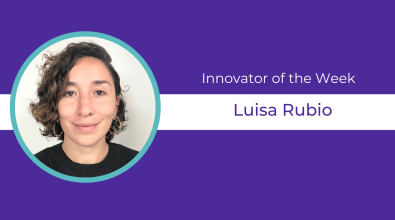A pioneer in busing, Curitiba now aims to improve transit options for the disabled
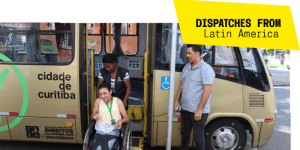
In the latest of our summer-long series checking in with the Latin American winners and finalists of the 2016 Mayors Challenge, Bloomberg Cities visits Curitiba, Brazil, and its work to use data to improve the city’s inclusive transit service, Acesso.
Clique aqui para ler em português.
Para la versión en español, haga click aquí.
Curitiba, the Brazilian city that invented bus-rapid transit back in 1974, is on the cusp of another innovation meant to speed up the way residents get around the city.
This time, the effort is aimed at passengers with disabilities, the core ridership for an existing door-to-door minibus service called Acesso.
Currently, about 1,500 riders a month use the buses, which frequently get stuck in traffic and, for passengers, regularly turn quick trips to the doctor into all-day outings. By using dynamic routing, an emerging technology that offers the potential to make buses of all kinds more efficient by taking riders on the straightest path to where they want to go, the city hopes to boost Acesso’s productivity by more than 20 percent. The plan is to offer more than 1,850 rides a month by the end of this year, without adding to the existing fleet of nine buses.
A finalist in the 2016 Bloomberg Philanthropies Mayors Challenge, Curitiba is now testing the technology underlying its “Inclusion-Oriented Transit” platform, and hopes to roll it out in October. City leaders can clearly see how much improved service will benefit the city’s 350,000 residents with special needs, many of whom can’t access the traditional transit system.
“I go home angry knowing that people call Acesso and [can’t get a ride],” said Denise Moraes, coordinator of the city’s Commission on Rights of Persons with Disabilities, whose mission is to help people with disabilities fully exercise their citizenship. “At the same time, there are buses that go empty because the system is not organized in the best way. That is why we want to take this next step.”
Even those who are able to secure rides often spend hours making trips that should take a fraction of the time. Dalia Cabrera, for example, said she and her husband, who suffered a stroke after a car accident, now spend eight hours a day traveling back and forth to his daily doctor appointments. Acesso has been a literal lifesaver for the Cabreras — “If it were not for [the service] I would have lost Alberto,” Dalia said. Still, she wishes the daily commutes were faster and the waits for the bus weren’t so long.
That’s exactly what Curitiba leaders hope for Acesso after implementation of their platform. An ad-hoc system of scheduling and routing that is currently organized manually — and by each driver — will be replaced by an algorithm that determines the fastest and most convenient routes. The municipality is developing the technology in-house and plans to put in place a small call center to centralize scheduling requests.
The process will likely provide valuable insights for other cities looking to move toward dynamic routing. And it will, without a doubt, bring Acesso’s life-changing services to even more customers, such as María Elena Antunes Rodríguez and her wheelchair-bound 22-year-old daughter, Jianni. “For me it’s difficult to carry her in her chair — I don’t have the strength. So we didn’t leave the home,” Rodríguez said. “Everything changed with Acesso. It was the best thing that has happened to us.”
Juan Paullier is an Uruguayan freelance journalist. He worked for the BBC for almost a decade as a correspondent in Mexico, Central America, and Venezuela and also at the London and Miami offices.
Read more stories in this series:
- SANTIAGO: Why cities around the world should take notice of Santiago’s fight against childhood obesity
- ESTACIÓN CENTRAL: How one mayor and his city are tackling the immigration crisis
- ASUNCIÓN: Paraguay’s capital city takes the first steps toward counting — and including — its residents
- CURITIBA: A pioneer in busing, Curitiba now aims to improve transit options for the disabled
- BOGOTÁ: How Bogotá is making kids’ commutes safer, educational — and fun
- MEDELLÍN: How Medellín is breaking the grip of illegal lending
- GUADALAJARA: Guadalajara fights corruption — and changes the way it’s being built — one click at a time
- SÃO PAULO: As Amazon burns, São Paulo pushes sustainable agriculture
